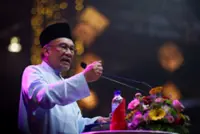THERE are plans to extend the practical training period for graduates to ensure they are fully empowered with more value-added skills in the course of their internship at the workplace, says Steven Sim.
The Human Resources Minister said the ministry is currently discussing with the Higher Education Ministry and universities to extend the practical session period which normally ends after three months.
“For example, law graduates undergo chambering in legal firms where they are able to learn on the job and by practice.
“Doctors are required to partake in housemanship training for one or two years. This is a strategy to ensure graduates boost their skills while learning on the job during their practical training,” he said during the Minister’s Question Time.
Sim was replying to a supplementary question by Dr Mohammed Taufiq Johari (PH-Sungai Petani) on efforts to collaborate with the Higher Education Ministry in producing more quality graduates.
The minister also added that 40% of interns end up taking up employment with the same companies after their internship.
Sim said skill-related underemployment rate in the third quarter of this year stood at 36.8%.
This, he said, is an improvement compared to 37.3% in the third quarter of last year.
Based on the Labour Force Survey report by the Statistics Department, skill-related underemployment is defined as individuals with tertiary education working in semi-skilled or low-skilled categories.
“The statement by YB Alor Setar, claiming that skill-related underemployment involved 1.95 million people, an increase of 100,000 compared to 1.94 million in the previous quarter, is inaccurate.
“The actual increase in underemployment figures was only 10,000 people in the third quarter of 2024,” he said.
Sim was replying to a question by Afnan Hamimi Taib Azamudden (PN-Alor Setar) on the government’s efforts to address the issue of 1.95 million tertiary-educated workers working in low-skilled jobs.









































